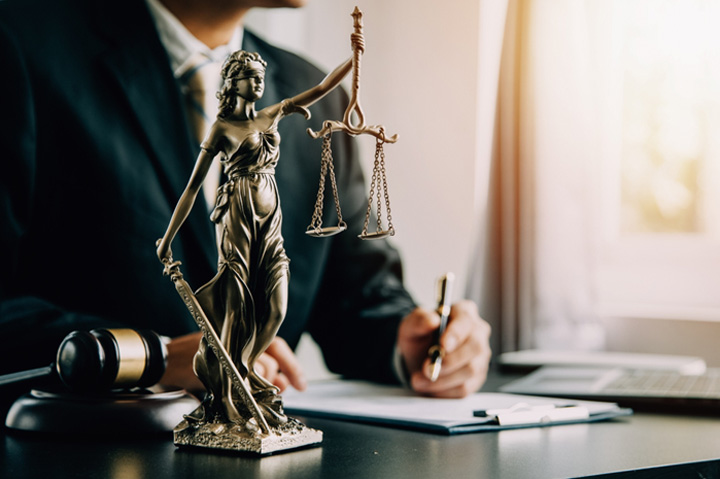tabithae418895
About tabithae418895
Law courts in the United Kingdom are designed to ensure that justice is carried out in a fair and transparent manner.
Court ushers. They ensure that everyone involved in a case, including witnesses, legal representatives, and defendants, is in the right place at the right time. Ushers may call cases into the courtroom, assist witnesses in taking the stand, and maintain order during hearings. Their role also includes helping to organize courtrooms for the proceedings and ensuring that any documents or evidence are appropriately handled.
The issue of court accidents has gained further attention due to recent public sector spending cuts. Reports from court unions and professional associations suggest that reductions in maintenance budgets have increased the risk of safety hazards. Outdated heating systems, broken lifts, inaccessible facilities for disabled individuals, and insufficient security staff have all been cited as contributing factors to declining safety standards.
 One of the essential tasks of law courts is to uphold the principle of the rule of law. This means that courts must ensure that all individuals and institutions, including the government, adhere to the law. This duty is especially important in cases where the actions of public bodies or officials are being challenged. Courts must ensure that government decisions and actions comply with the law and do not infringe upon the rights of individuals. Judicial review is an essential aspect of this duty, where courts assess whether public bodies have acted unlawfully, irrationally, or outside their powers.
One of the essential tasks of law courts is to uphold the principle of the rule of law. This means that courts must ensure that all individuals and institutions, including the government, adhere to the law. This duty is especially important in cases where the actions of public bodies or officials are being challenged. Courts must ensure that government decisions and actions comply with the law and do not infringe upon the rights of individuals. Judicial review is an essential aspect of this duty, where courts assess whether public bodies have acted unlawfully, irrationally, or outside their powers.
While the procedures can vary depending on the type of case (e.g., civil, criminal, family law), there are several key stages and steps that are common across most court proceedings. This article will explore the typical procedures followed in UK law courts, from the initiation of a case to the final verdict.
In civil matters, the supreme court is the Court of Session, located in Edinburgh. It is divided into the Outer House and the Inner House. The Outer House primarily hears first-instance cases, while the Inner House deals with appeals. This court has jurisdiction over complex and high-value civil disputes, including commercial litigation, judicial review, and constitutional matters.
In the event you loved this information and you would want to receive more info regarding personal injury lead generation AZ generously visit the internet site. Judges and magistrates are perhaps the most well-known members of court staff. They are responsible for presiding over cases, making rulings, and ensuring that trials are conducted fairly. Judges in higher courts, such as the High Court or Crown Court, handle more complex and serious cases, while magistrates deal with lower-level criminal cases, civil matters, and preliminary hearings. Judges are tasked with interpreting the law, applying legal principles, and delivering judgments based on evidence presented in court. They also play a significant role in sentencing offenders, ensuring that punishments are appropriate and proportionate to the offense committed.
Court administrators. They ensure that resources are properly allocated, staffing needs are met, and that the court’s facilities are in good working order. Court administrators also liaise with other court personnel, including judges, clerks, and security staff, to ensure that the court runs smoothly and that cases are heard in a timely manner. They also handle budgets and oversee the management of court facilities, ensuring that courtrooms are appropriately equipped and maintained.
Modernisation of the court system has also been a focus in recent years. The Scottish Courts and Tribunals Service has invested in digital transformation, allowing for online case tracking, virtual hearings, and electronic documentation. These innovations became especially critical during the COVID-19 pandemic, when remote hearings ensured continuity in legal processes.
Efficiency is another essential duty of law courts. Courts must manage case backlogs, avoid unnecessary delays, and ensure that cases are heard in a timely manner. Prolonged delays can lead to frustration for individuals involved in legal proceedings and can undermine confidence in the legal system. Courts have systems in place to prioritize urgent cases, such as those involving vulnerable individuals, and ensure that the legal process moves forward as efficiently as possible.
One significant case occurred in a central London court, where a solicitor slipped on a wet floor in a courthouse lobby. No signage had been posted, and CCTV footage confirmed the lack of warning. The incident resulted in a serious back injury, and the injured party later pursued a personal injury claim against the Ministry of Justice. The case highlighted that even government premises are subject to the same health and safety laws as private businesses.
These staff members play vital roles in supporting the judiciary, managing cases, and facilitating the delivery of justice. From judges and magistrates to clerks, legal advisers, and security personnel, every member of staff has a unique and important responsibility within the legal system. This article explores the key roles of law courts staff in the UK, their duties, and how they contribute to the judicial process.
No listing found.
